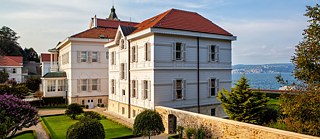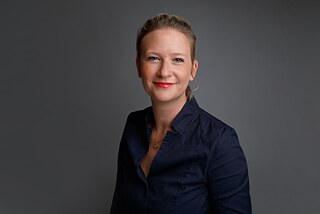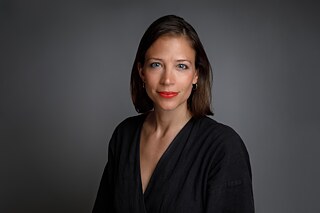Tarabya Cultural Academy: Interview with artistic directors Pia Entenmann and Lena Alpozan
"A protected space for individual artistic work, dialogue and freedom of expression"

The Tarabya Cultural Academy in Istanbul is an institution of the Federal Government and part of the cultural work of the German Embassy in Turkey; curatorial responsibility is borne by the Goethe-Institut. The Cultural Academy is a residence programme for artists and is intended to contribute to German-Turkish cultural exchange. Today we are talking to Pia Entenmann, the artisticdirector of the Tarabya Cultural Academy from 2017 to 2023, and Lena Alpozan, the new artistic director of the Tarabya Cultural Academy.
Ms Entenmann, Ms Alpozan, what exactly is the Tarabya Cultural Academy?
PE: The residence program at the Bosporus was established in 2011 on the initiative of the German parliament. Every year, the Tarabya Cultural Academy enables around 20 scholarship holders with their place of work and residence in Germany, as well as German-Turkish artist tandems, to network with the Turkish cultural scene within the framework of co-production scholarships, which are awarded in cooperation with the Allianz Cultural Foundation.

Who can apply for a residency programme?
PE: Every year, the Tarabya Cultural Academy awards grants to artists for residencies of four to eight months in Istanbul within the framework of an open call procedure. Exceptionally qualified artists and cultural workers who have already gained public recognition with their works or publications and have their creative centre and place of residence in Germany can apply, as well as tandems of cultural workers resident in Germany and Turkey within the framework of Turkish-German co-production scholarships.
What criteria do you use to select artists for the residence program?
LA: An independent jury consisting of five expert members evaluates the artistic quality of the applications. The jury looks for strong artistic voices whose creative concerns seem compelling. This is always a mix, ranging from established artists to new talents.
What distinguishes a scholarship at the Tarabya Cultural Academy?

LA: Another, almost unique, feature is the family-friendliness of the Cultural Academy. The scholarship holders can travel with their family, partners and children, single scholarship holders with underage children can also apply for a subsidy for the necessary childcare and school costs.
You announce an Alumni Fund twice a year. What exactly is an alumni fund and what is its goal?
PE: As the Tarabya Cultural Academy, it is very important to us that the contact with the scholarship holders does not end with the end of the scholarship, but that the connection to Turkey and the Turkish scene is sustainably secured beyond the duration of the scholarship. For this reason, the Tarabya Cultural Academy has been announcing an alumni fund twice a year since September 2019 to support projects, to which former scholarship holders can apply.
What is supported by the alumni fund?
LA: Funding is provided for follow-up projects by alumni that were created during their scholarship at the Tarabya Cultural Academy. In addition, projects that were created after the scholarship period can also be supported if they have a connection to Turkey. In addition to the quality of the content of the project and the potential for innovation in the case of co-production funding, we pay particular attention to a balanced project partnership with the Turkish co-production partner when making our selection.
PE: The Alumni Fund currently comprises five funding lines: Research funding, translation funding for authors, (co-)production funding, funding for digitally presentable projects and funding for participation in projects initiated by Turkish partners.
LA: In view of the devastating earthquake in south-eastern Turkey, we decided this year to make our alumni fund available in the coming months specifically and exclusively for projects that are being developed with our partners in south-eastern Turkey in order to help rebuild the cultural infrastructure and support the artists and institutions affected.
Which projects have been funded so far?
PE: The Alumni Fund, which was launched in 2019, has supported a total of 43 projects so far. The exhibition project "Mis(s)placed Women?" by Tanja Ostojić is one of the projects that was successfully realised in 2022 with the support of the Alumni Fund. In performances, workshops and an online platform, topics such as displacement, climate change, feminism, inclusion and power relations are addressed. Developed during the pandemic by the artists Asli Serbset and Mona Mahall, the interactive, online accessible model "Digital Twin" of the embassy residence in Tarabya responds to the situation in the isolation of the pandemic and attempts a virtual way out. The media installation, supported by the Alumni Fund's "Digital Projects" line, was shown for the first time as part of the exhibition of the eponymous Studio Bosporus 2021 festival at Kunstraum Kreuzberg/Bethanien.
LA: Another example of the Alumni Fund is the interdisciplinary art project "Sandstorm - And Then There Was Dust", curated by Tarabya alumnus Ayat Najafi and curator Sarah Maske, which was first shown in Istanbul, then in Berlin in 2021 as part of the festival "Studio Bosporus. 10 Years of Tarabya Cultural Academy" festival. The exhibition uses artistic and scientific approaches to examine the roots and consequences of sandstorms in Turkey, Iraq and Iran and their foothills. In the documentary film "The Guardian", Tarabya alumna Martina Priessner draws the portrait of a Syrian Orthodox nun in southern Turkey. The film premiered at DOK Leipzig in 2020 and was awarded the documentary film prize of the Goethe-Institut. Katerina Poladjan's touching novel "Hier sind Löwen", nominated for the German Book Prize 2019, was translated into Turkish in 2020 as part of the Alumni Fund's translation fund and published by Nebula Kitap.
What developments do you see for the Tarabya Cultural Academy in the future?
PE: The Cultural Academy is a protected space for individual artistic work, dialogue and freedom of expression - for artists from Germany and Turkey alike. Especially in the politically tense situation and now with the devastating earthquake in south-eastern Turkey, these protected spaces are becoming increasingly important.
LA: The Cultural Academy must take up current developments and constantly readjust its profile accordingly. The search for networks, affiliations, global themes, history and stories will continue to be the theme of artists from Germany and Turkey, and thus also of the Tarabya Cultural Academy.